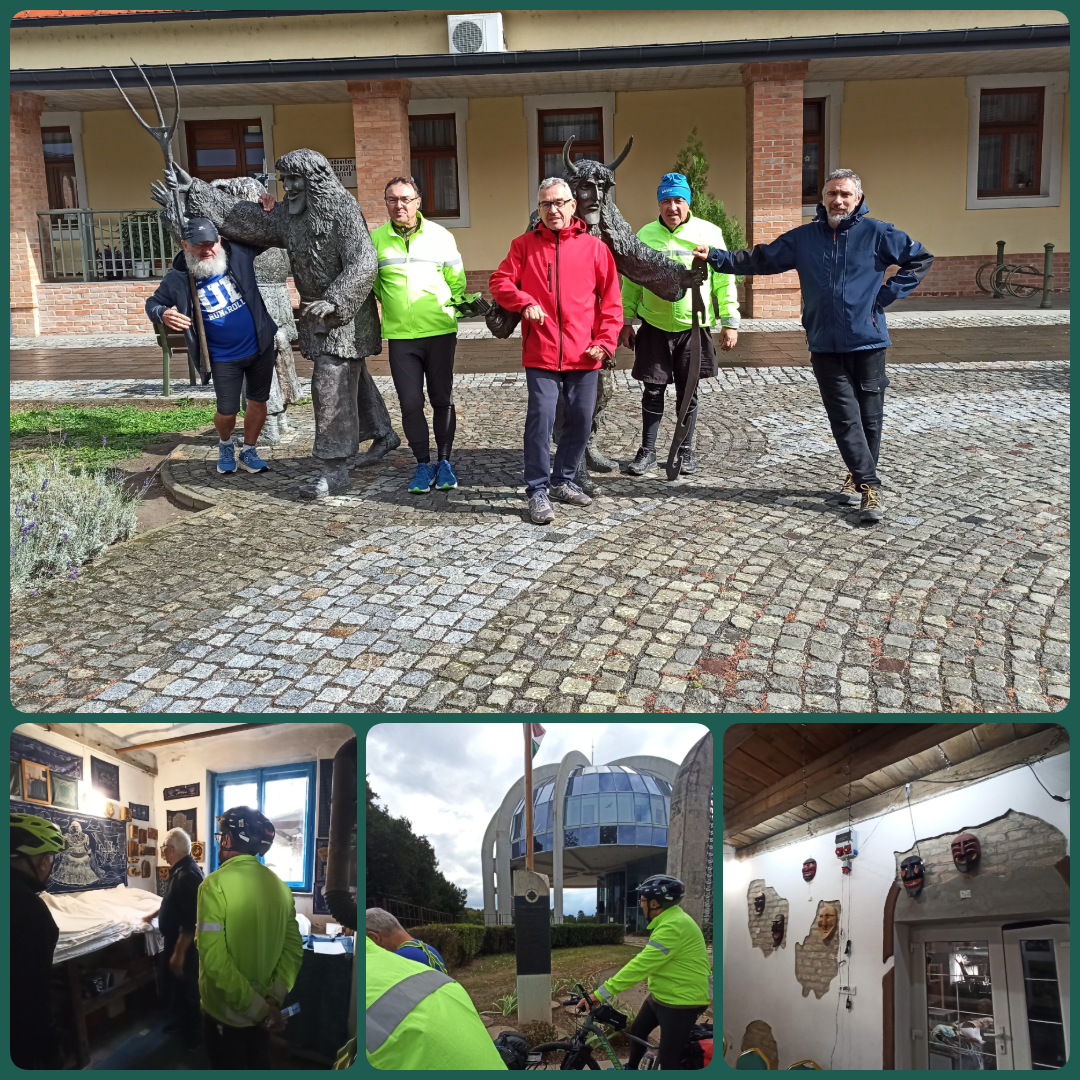The Explorer Tour as part of the capacity building for tourism agencies was successfully implemented as part of the ICTr-CE project, during which participants were able to explore the section of the Iron Curtain Trail between Đurđevac and Mohács in practice and gain first-hand experience of the quality of the route, the functioning of the services along the route, and the length of the planned sections. During the tour, they discovered the cultural, historical and natural values of southern Hungary and Croatia, while experiencing life in the border regions and learning about the local heritage of the Iron Curtain era. The Explorer Tour helped participating tourists to assess first-hand the range of services on offer, the infrastructure and the special atmosphere of the EuroVelo 13 – Iron Curtain Trail.
Day 1: Đurđevac – Koprivnica
On the first day of the tour, the group travelled by transfer from Pécs to the town of Đurđevac, where the cycling adventure began. The first stop was the unique Đurđevac Sands Visitor Centre, which is Croatia’s unique natural treasure: the “Croatian Sahara,” which makes the area memorable with its sand dunes, native plants, and small animals. This was followed by a visit to the church in Molve, a symbol of the history and resistance of the local community. At the end of the day, participants were introduced to the colourful and unique world of world-famous Croatian naive painting at the Hlebini Naive Art Gallery.
Day 2: Koprivnica – Barcs
The second day focused primarily on cycling, as this was the longest stage of the tour, leading from Koprivnica in Croatia all the way to Barcs. After a few kilometres, the group took a break at Skela Brodić on the picturesque banks of the Drava River, then continued to Barcs. The participants discovered the cultural and historical curiosities associated with the EuroVelo 13 border crossing, which also symbolise the rebirth of cross-border relations. The guests ended the evening with a pleasant dinner.
Day 3: Barcs – Szaporca
On the third day, cyclists followed the ICT route and discovered the deserted village of Révfalu, where the sad legacy of the Iron Curtain era is still visible: due to the migration of the population from the border regions and historical events, the village has now become almost completely deserted. The panoramic lookout tower and charming church in neighbouring Drávasztára provided another experience for the participants, and in the evening, the peaceful atmosphere of picturesque Szaporca ensured a restful night.
Day 4: Szaporca – Villány
On the fourth day, the group started the day at the Ormánság House in Szaporca, where they learned about the unique ethnographic and natural values of the region through an interactive exhibition and enjoyed a guided tour of local history. They then visited Siklós Castle, one of the most significant medieval fortifications in southern Transdanubia, where they learned about the castle’s past during a detailed guided tour. They ended the day in Villány, Hungary’s premier wine region, where they enjoyed wine tasting and a sumptuous dinner.
Day 5: Villány – Mohács
On the final day of the tour, participants visited the Swabian heritage house in Kisjakabfalva, where they learned about the everyday life and rich traditions of the local German community in an authentic setting surrounded by original furnishings. Afterwards, in Nagynyárád, they gained insight into the craft of traditional textile dyeing at the famous blue dye workshop, where century-old printing blocks and craft techniques were brought to life. Before arriving in Mohács, they visited the Mohács National Memorial, commemorating the battle of 1526. Afterwards, at the Busóudvar carnival tradition centre in Mohács, they were enriched by the colourful and noisy carnival customs of the famous Busójárás, learning about the winter-chasing festival of the Sokacs people of the Danube. At the end of the tour, they also had the opportunity to visit the so-called KultúrKikötő, also known as the Busó community house, where ethnographic lectures and craft workshops are held.
The Explorer Tour was a truly community-oriented and experience-rich trip, which, thanks to the ICTr-CE project, gave new impetus to cross-border cycling tourism and regional cooperation. We would like to thank our guests for participating and sharing their experiences!
